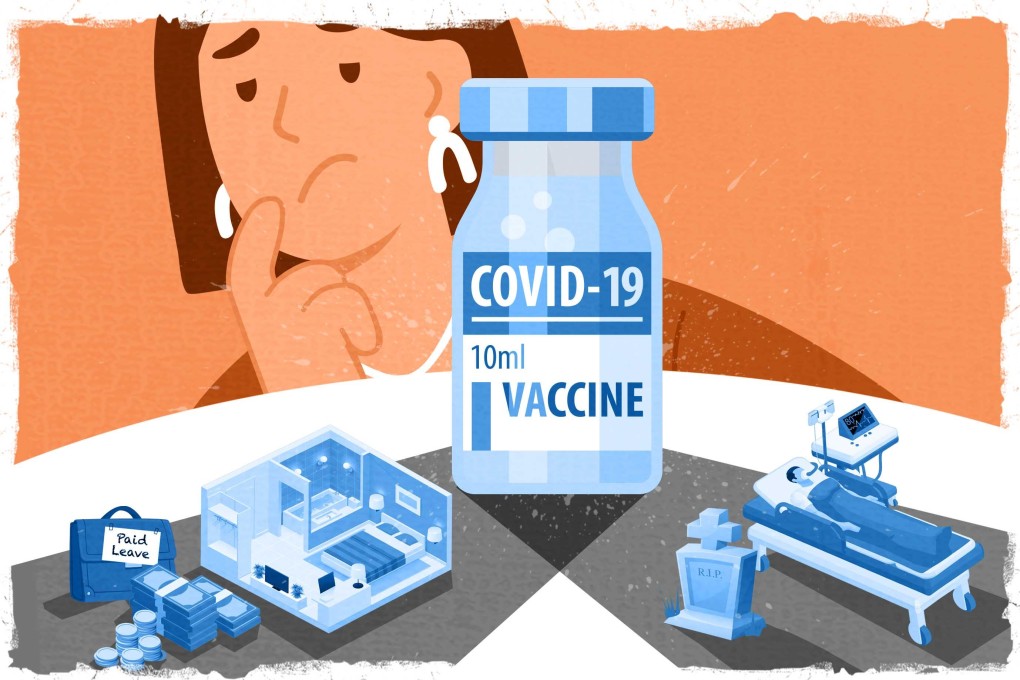Advertisement
Hong Kong vaccine perks: giveaways for coronavirus jabs are nice, but reluctant residents prefer assurance, facts, paid days off
- Cash incentives appeal to hesitant poor people who cannot afford health checks before jabs
- Experts urge authorities to do more to explain, win over those who fear vaccines, side effects
Reading Time:5 minutes
Why you can trust SCMP
10

Owen Ching is eager to get vaccinated against Covid-19, but cannot afford a medical check-up to find out if he is fit for the jabs.
Since losing his job as a restaurant manager last year, the 38-year-old Hongkonger has relied on support from NGOs and moved into a 20 sq ft hostel room, paying HK$2,000 (US$260) a month.
He is afraid he may have health problems that could result in side effects after he is vaccinated.
Advertisement
Now working part-time as a security guard for a little over HK$10,000 a month, the cost of a check-up has deterred him from finding out if he can go ahead and get his jabs.
Recently, however, he has been cheered by the wide range of incentives rolled out by businesses to push more Hongkongers to get vaccinated.

Especially appealing to him are the cash rewards, including HK$1,000 for the underprivileged to get their vaccination and a health check.
Advertisement
Advertisement
Select Voice
Choose your listening speed
Get through articles 2x faster
1.25x
250 WPM
Slow
Average
Fast
1.25x